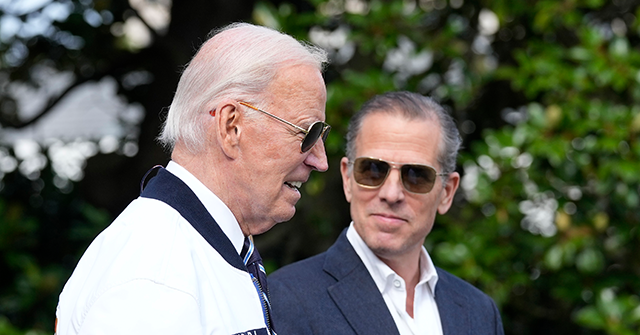President Joe Biden’s recent pardon of his son, Hunter Biden, has sparked significant debate among Democrats, revealing deep divisions within the party regarding the implications of this action. Longtime Biden adviser Anita Dunn publicly criticized the timing and the manner in which the pardon was executed, stating that it undermined previous commitments to respect the judicial system. This sentiment highlights the split opinions among Democrats, as some publicly supported the pardon while others voiced their discontent. Journalist Mark Halperin noted that Dunn’s criticism from a close advisor’s perspective suggests that further backlash may emerge from within the party.
Polling data on the pardon reveals contrasting views among the electorate. An Associated Press poll indicated that 51 percent of respondents opposed the pardon, with only 21 percent in support. Among Democrats, about 38 percent approved of the action, alongside just 12 percent of independents. In contrast, a Monmouth poll showed that a significant 65 percent of Democrats backed the pardon. These conflicting statistics underline the complexity of public sentiment regarding Hunter Biden’s legal troubles and the political ramifications for the party moving forward.
Dunn, speaking at a New York Times roundtable event, emphasized her agreement with Biden’s ultimate decision to pardon his son but expressed disapproval regarding its timing and the implications it had on the judicial system. She criticized the pardon as a departure from the president’s previous stance, where he had indicated he would not grant any clemency to Hunter Biden. This inconsistency raises questions about the integrity of the president’s message on the rule of law, which he ran on during his election campaign.
While asserting that Hunter Biden deserved compassion and understanding due to his struggle with addiction and his past legal issues, Dunn made it clear that the president’s pardon should have been issued in a manner more consistent with traditional understandings of clemency. She argued that if the pardon had been granted at the end of Biden’s term in a more compassionate context, it might have been received differently, thereby minimizing possible criticism from within the party and the public.
Dunn’s comments also reflect a broader concern about how the pardon decision aligns with the Biden administration’s commitment to uphold the rule of law. She articulated the view that such a decision could potentially weaken the president’s authority on judicial matters, particularly during a time when he is surrounded by discussions of his administration’s nominees and other significant policy issues. The political optics of granting a pardon to his son amidst ongoing discussions about justice reform have raised questions about Biden’s priorities and timing.
In summary, the debate surrounding Joe Biden’s pardon of Hunter Biden encapsulates a microcosm of larger themes within the Democratic Party, such as loyalty, the importance of the judicial system, and party unity. Dunn’s mixed feelings about the decision suggest the complexities of navigating familial ties and political responsibilities, as well as the challenges that such personal actions pose to the party’s future cohesion and public perception. As these discussions continue to unfold, it remains to be seen how they will impact both Biden’s administration and the Democratic Party’s future endeavors.

